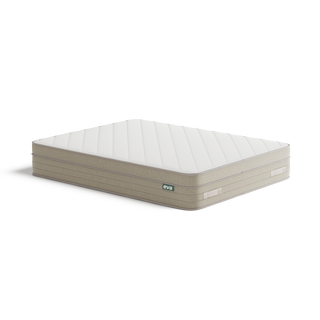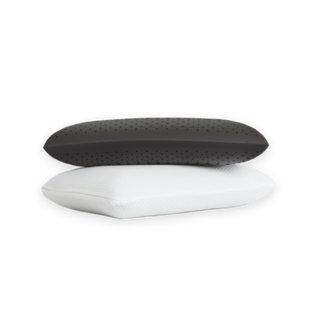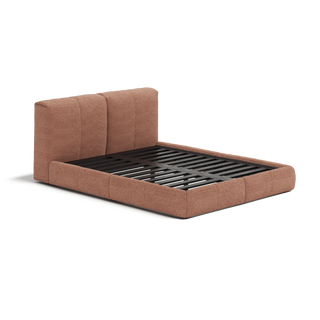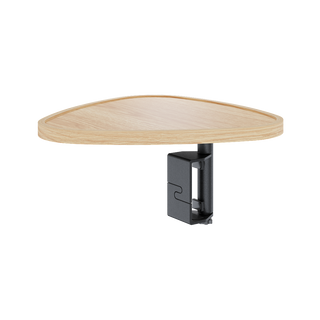Inhale. Exhale. Out like a light.
With stressful days and busy nights, it’s no surprise many of us have trouble sleeping. As we curl into bed each night, seeking solitude from our stressful routines, sometimes our brain refuses to switch off.
You’ve probably heard of meditation, but if you’re like us then maybe you didn’t know that one of the many benefits of meditation is improved sleeping patterns.
The practice of meditation can sound tricky or confusing but in reality, it’s simple.

How to master meditation
There’s a reason why it’s called the ‘practice’ of meditation. Because it takes exactly that, practice.
Start by finding a quiet place away from the hustle and bustle of home life. Meditation can be done seated in a comfortable chair but for a better night’s sleep, try laying down in bed for maximum dozing benefits.
Close your eyes and begin to slow your breathing. Inhale deeply in, exhale deeply out. Focus on your breaths. If you find you’re getting distracted, be patient with yourself. Just start the process of breathing again and stick with it.
For beginners, you may find it easier to listen to a guided meditation while you practice. Listening to a voice can help you refocus and drown out any distractions.
Continue on for three to five minutes, allowing your body to feel heavy as you sink into sleep. As you get better at learning to quieten your mind, you can increase your meditation time for 15 to 20 minutes. The longer you meditate, the deeper you sleep.
The benefits of meditation
Incorporating meditation into your daily routine comes with many science-based benefits. With the ability to lower blood pressure, reduce the stress hormone cortisol and decrease inflammation, there’s more than one upside to taking a little downtime.
Here are the top three ways meditation can improve your wellbeing:
Reduces stress
When you’re under a lot of pressure and feeling stressed, your body increases its levels of the stress hormone, cortisol. Once cortisol is in action, it releases inflammatory chemicals that promote feelings of anxiety, a spike in blood pressure, fogginess and fatigue. Over time, stress can have debilitating effects on the body making it harder to function during the day.
Regular meditation helps to relieve the inflammation response and gradually alters how your mind and body process feelings of stress, allowing you to feel calmer and more content.

Improves sleep
If you have trouble sleeping, you’re probably familiar with the feeling of a rattling brain when you get into bed. Going over the day's events and attempting to sleep when you’re still feeling wired both keeps you awake and interrupts your sleep cycle.
Taking a few minutes to meditate before sleep slows down your nervous system, which helps to increase levels of the sleep hormone melatonin and its precursor serotonin.
When you become skilled in the art of meditation, your mind learns to slow down, relax your body and release tension making it easier to drift off and wake up feeling recharged.
Improves emotional health
We’re all familiar with those days where you wake up on the wrong side of the bed. Our moods have the ability to dictate our entire day and can determine how we react to different scenarios.
When you practice regular meditation, your medial prefrontal cortex decreases negative neurological connections in the brain. By eliminating negativity, it allows new positive connections to develop to promote heightened focus, decision-making skills and emotional regulation.
By rewiring your brain, you begin to feel less irritable and increase your feel-good hormones, giving you the chance to consistently wake up on the right side of the bed.
Let’s meditate
Consider this your sign to try meditation tonight. Lay down, wrap yourself up in your softest sheets and allow yourself to take a moment of solitude.
Sweet dreams.
Need help sleeping? Listen to our guided meditation with Carlo Cirillo, founder of the The Conscious Podcast. In this 15 minute Instagram Takeover, Carlo gently guides you through a meditation to help you drift off with a deep sense of gratitude.
























